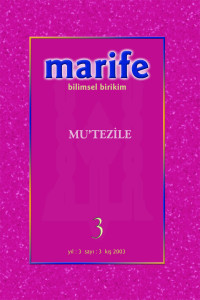Abstract
One of the most debated matters in tafsir literature is muhkam-mutashabih. Among the Islamic scholars debated matter is muhkam (clear verse) and mutashabih (allegorical) in the Qur’an 3: 7 verse. Although this verse describes some Qur’anic verses as muhkam and others mutashabih, it doesn’t state clearly what it means with these concepts. In this article, the Mu’tazilite commentator Zamakhshari’s (d. 538/1144) explanations connected with key concepts like "muhkam", "mutashabih", "umm al-kitab (the essence of the Book)" and "ta’wil (interpretation) in question verse will be analised because of the fact that Zamakhshari was in such a position both in these topics and the others that all of the later commentators had taken him as a reference. For example, Zamakhshari points out that why muhkam verses are called umm al-kitab. They are considered to serve as a basis for interpreting mutashabih verses. According to him, the mutashabih verses can be understood not only by God, but also by those who are firm in knowledge.
References
- ..............................................................................................................................................................................................................................
Details
| Primary Language | Turkish |
|---|---|
| Subjects | Religion, Society and Culture Studies |
| Journal Section | Research Article |
| Authors | |
| Publication Date | December 31, 2003 |
| Published in Issue | Year 2003 Volume: 3 Issue: 3 |
This work is licensed under a Creative Commons Attribution-NonCommercial 4.0 International License.

